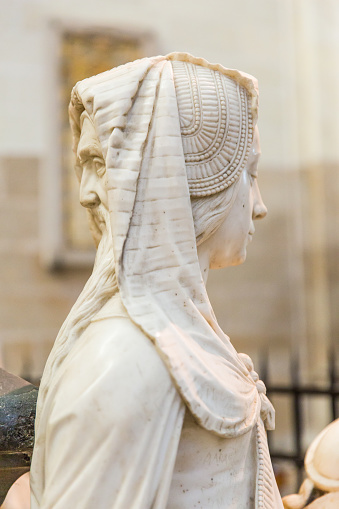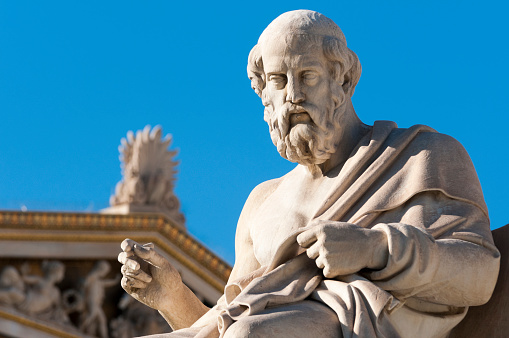
Table of Contents
What are the 4 Cardinal Virtues?
There are four cardinal virtues concerning the mind and the character of an individual according to the doctrines of classical philosophy and Christian Theology. The ancient Greek philosophers and thinkers stated that there were seven virtues in all, out of which four were recognized as cardinal virtues. The four cardinal virtues were recognized by the inhabitants of civilized society while the other Theological virtues existed as a rule for the Christians primarily. The cardinal virtues are:
- Prudence
- Justice
- Fortitude
- Temperance
Now, the question is, what connection do these age-old virtues have with our lives; this very modern, 21st-century life where every step is guided by power and technology. People have always believed that these virtues are essential to living a happy and healthy life which in turn, helps in shaping up an ideal society.
Prudence

Prudence is defined as that virtue which enables a person to discern the appropriate course of action to be taken in a given situation at the appropriate time. This involves the application of a person’s knowledge and their capacity for correct and rational judgement in any given situation.
Justice

Justice occupies a lot of significance as a virtue. Among its many connotations, it stands for fairness, righteousness, and a lack of bias. Justice is very important among the 4 cardinal virtues because it ensures the catering of justice to everyone in the society irrespective of any other prejudices or considerations. It aims at securing a fundamental moral law for everybody.
Fortitude

Fortitude is defined as the virtue of forbearance, strength and endurance. It also implies the quality of an individual to stay undaunted and undeterred in the face of uncertainty, fear and intimidation.
Temperance

The cardinal virtue that equips any human being to practice self-control, restraint and abstinence and in turn, temper the appetition (a name given to the philosophy of desire), is known as temperance. This virtue helps us to lead a moderate life devoid of addictions and extremities.
4 Cardinal Virtues of Aristotle

Aristotle first used the term ethics to define a field of study developed by his predecessors- Socrates and Plato. He considered that the highest aims in life are living well and eudaemonia which is often translated as well-being, human- flourishing, and happiness. He also overtly emphasized the practice of virtues for every human being in order to live a satisfactory and happy life. Out of Aristotle’s 12 virtues here is how he defines the 4 virtues:
- Prudence – As stated earlier, Prudence is defined as the quality of being able to practice practical wisdom. This is the most important virtue for Aristotle. For example, soldiers on battlefields or public servants in positions of responsibility require prudence to discern the course of action they need to follow in a given situation. Aristotle also deems the virtue of courage a pre-requirement to practice the virtue of fortitude or courage.
- Temperance – Temperance to Aristotle means moderation or self-restraint. For example, temperance is imperative for any human being, again, at a position of responsibility so that they do not give in to their whims, fancies, and desires. A soldier fighting in a war must be able to control their desire for enjoyment and display moderation is what Aristotle means by this virtue.
- Fortitude – As Aristotle puts it, Fortitude or Courage is “moderation or observance of the mean with respect to feelings of fear and confidence.” He says courage is “observance of the mean with regard to things that excite confidence or fear, under the circumstances which we have specified, and chooses its course and sticks to its post because it is noble to do so, or because it is disgraceful not to do so.” Aristotle advocates that war is a domain where every soldier must display gallantry and that, that is the only way courage can be demonstrated and epitomized.
- Justice – Aristotle states that – “It is in justice that the ordering of society is centered” and quite justifiably so. He believes that fairness and lawfulness should always prevail in every society and that being said, every human being must demonstrate equality in their actions and behaviour and redress inequality and unjust practices. For him, justice is to give your enemy what is due to them in the proper manner. Recognizing community welfare and taking actions accordingly is the sole aim of this virtue
4 Cardinal Virtues of Plato

One of the most prolific figures of the ancient Greek world and Aristotle’s most significant teacher- Plato, also identified four cardinal virtues for a wholesome approach towards individual life and society. To quote him- “The State which we have founded must possess the four cardinal virtues of wisdom, courage, discipline and justice” as also the individuals inhabiting it. This is how he defines the 4 virtues-
- Prudence- Prudence is called the auriga virtutum or the charioteer of all virtues. It is better defined as the prerequisite to practice all the other virtues, very much like what Aristotle believes. For Plato too, the virtue of Prudence encompasses practical wisdom, insight, and knowledge. As St. Thomas Aquinas remarks- “Prudence is right reason in action”.
- Temperance – Temperance, says Plato, is the virtue that protects against excess. Plato believes that temperance conditions and prepares a human being for all sorts of temptations- present and future and also enables them to establish a harmonious ground between their desires and what they should not do.
- Fortitude – As Plato believes, Courage or Fortitude also facilitates the journey of achieving justice. If an individual possesses courage, it gives them the power to overcome all obstacles that come in the way of justice. valor, determination, reliability, and vigour are the key practices to master the virtue of fortitude.
- Justice – Justice, according to Plato, is the flawless order that every individual should practice in all walks of life. He argues that justice in the State means justice in the individuals of the State. Justice is imperative to healthy and happy community life. Thus, these cardinal virtues are extremely significant for the self-improvement of individuals and in turn, shaping up the society that they constitute.
It is necessary to understand these cardinal virtues and practise these stoic rules in our everyday life.
Download the Evolve App to perform fun journeys for self-improvement.
You would also like:
- 30 Zeno Quotes
- Aristotle Quotes on Education
- 40 Best Immanuel Kant Quotes
- 10 Stoic Principles Simplified for you!
Damayanti Dubey is a final year English major at Loreto College, Kolkata. She is a writer by passion and loves to indulge in languages, especially English, Bengali, and Urdu. She aims at exploring all of their intricacies and nuances. Damayanti is a disciple of Padma Bhushan Pandit Ajoy Chakraborty and is a national scholar of Indian classical music. She has always believed that a sound mind, free from the clutches of regressive and negative thoughts is the key to living a healthy life and makes efforts to promote mental wellness through the power of her words.
Damayanti believes in thinking beyond boundaries.